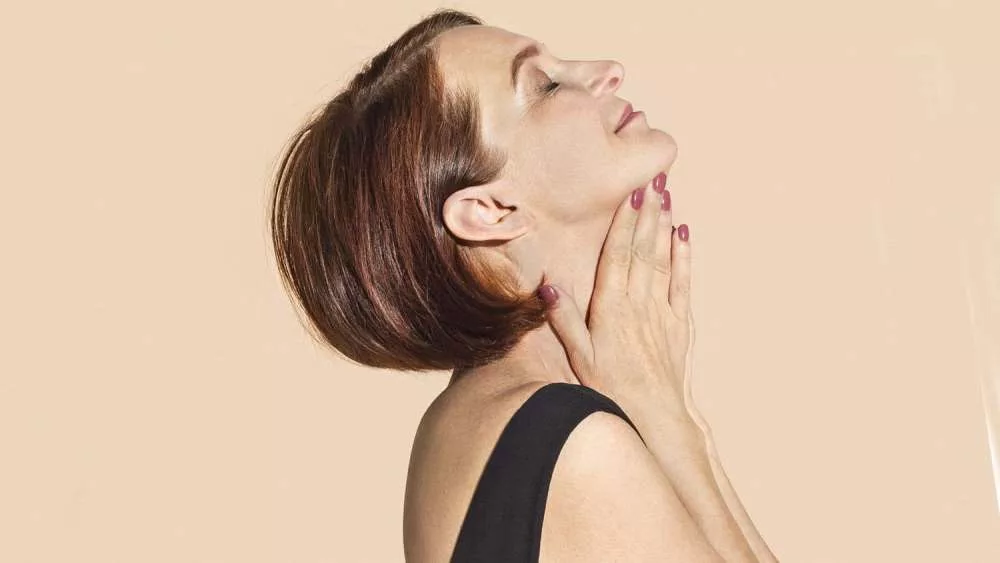
From retinol peels and microdermabrasion to special diets and supplements, it seems we’re being inundated with so-called miracle procedures and anti-aging myths. But the world of anti-aging is chock-full of rumors and misinformation, making the search for firm, youthful skin a sometimes scary place.
Before you smear mysterious ingredients all over your face or spend half your paycheck on a tiny jar of anti-aging cream, you should know more about how and why your skin ages. We tapped a handful of experts, from dermatologists to plastic surgeons, to help decipher the facts from fiction.
1. Wrinkles Are the First Sign of Aging
Although most people don’t think twice about aging until they start to see wrinkles, dermatologists agree that more subtle changes in skin laxity, fine lines, discoloration, and texture may appear first. “I find that dark spots and low facial volume is what people start to see before anything else,” says Jason Emer, MD, a board-certified dermatologist and surgeon in Beverly Hills, Calif.
But there are other signs of aging that Emer’s clients look to combat, too. “A lot of people in their 20s come in saying they are noticing dark circles and hollow skin under the eyes and folds around the mouth.” All this to say: It’s never too early to start an anti-aging skincare routine. Prevention can make all the difference when your skin eventually starts to lose its collagen.
2. Aging Is Genetic
You might assume that aging has everything to do with your genetic pool, but your mom’s aging timeline is not necessarily an indicator of yours. “The aging of our skin is determined by both intrinsic and extrinsic factors,” says Joshua Zeichner, MD, a board-certified dermatologist in New York City.
Zeichner continues: “Intrinsic aging refers to our genetic predisposition, and we know that some people are genetically blessed to be ‘super agers.’ But you can’t forget about extrinsic aging, which refers to the acceleration of our natural aging process due to environmental factors like UV light and pollution. Despite our genetics, extrinsic factors can lead to poor aging even in people with good genetics.”
3. Chemical Peels Are Damaging
Both the words ‘chemical’ and ‘peel’ might make you cringe, but don’t be too quick to knock the treatment. “Some of the older, deep chemical peels could permanently change the appearance of the skin,” says Konstantin Vasyukevich, MD, a board-certified plastic surgeon in New York City. “However, most of the peels that are in use today are much more gentle on the skin and do not cause any harm if properly used.”
If you do decide to go for a treatment, make sure it’s being performed by a qualified and experienced board-certified plastic surgeon and that you ask plenty of questions related to your skin type.
4. Sunscreen Should Only Be Worn in the Sun
If your weather app is forecasting cloudy skies ahead (or you’re just planning to spend the day indoors), you may be tempted to skip the sunscreen. But it’s not smart to skimp on the SPF, and you should wear sunscreen even if you’re inside. According to Hadley King, MD, a board-certified dermatologist in New York City, you are constantly being bombarded by the stressors of sunlight. “There are two types of UV light: UVA and UVB,” she says.
The difference, King says, is this: “UVA rays are generally linked to the aging of skin cells and tend to be the cause of wrinkles, sun spots, and other signs of sun damage. UVB rays are the principal cause of sunburn, directly damage DNA in skin cells, and are linked to most skin cancers. The glass typically used in the car, home, and office windows is designed to block most UVB rays, but does not offer protection from all UVA rays, so your skin is still susceptible to aging.”
5. You Should See Anti-Aging Results Immediately
As much as we wish there was a miracle tonic or magical plant we could ingest to shave off a couple decades, anti-aging efforts often require persistence to see results. “Occasional or irregular use of skincare remedies is the most common cause of failure to prevent aging changes,” says Dr. Vasyukevich.
Dr. Zeichner adds that the average waiting period for an anti-aging product is one month. “Think of treating aging skin like a marathon not a sprint, and we do not have a silver bullet,” he says. “I tell my patients that it takes several weeks or even months to start to see the benefits of most skincare products. The closest thing you’re going to get to an instant anti-aging product is an exfoliator that helps remove dead cells on the surface of the skin, or hyaluronic acid to offer an immediate hydrating and plumping effect.”
6. Expensive Products Are More Effective
Good news for frugal shoppers: Yes, you can have a glowing, youthful complexion without overspending. A hefty price tag doesn’t ensure a product will be more effective, so instead of judging by price tag, observe the ingredients list first and manufacturer second. “Pricing in skincare is sometimes more a reflection of marketing and branding than of quality,” says Dr. Vasyukevich.
Despite many people believing that they have to undergo expensive anti-aging treatments in order to maintain their youthful appearance, Vasyukevich says the simplest and cheapest skincare precautions are often more effective than the more expensive alternatives. “For example, daily use of inexpensive sunscreen and skin moisturizer, in the long run, is far superior to intermittent, expensive treatments later in life,” he says.
7. Nighttime Skincare Is More Important Than Daytime Skincare
The concept behind beauty sleep might give the impression that your nighttime routine is when you should be whipping out your entire anti-aging arsenal, but Danné Montague-King, botanical chemist and founder of DMK Skincare, begs to differ.
“Your skin has different needs. In the morning, you need to protect. At night, rebuild. So in the morning, you’ll also want to use products that have ingredients to protect you from pollution and harmful rays (which are both leading causes of premature aging),” he says.
8. You Must Use Retinol Every Day to Reap the Benefits
This retinol myth is both true and false. Although you can use retinol every day, some skin types aren’t able to tolerate daily use. “In the first two to four weeks, your skin undergoes a process called retinization (when the skin cells adjust to the retinal molecule itself), where it is easily irritated,” says Dr. Zeichner. “To combat redness, dryness, itching, and peeling, you should stick to application every other day in the beginning to give your skin time to acclimate.”
It’s best to slowly ramp up your retinol usage as your skin gains more tolerance, but if you find that frequent doses are still sparking irritation, it’s best to go easy. Your skin knows best what it needs.
9. The More Water You Drink, the Better
We’re told that drinking copious amounts of water can help clear our skin and aid in our anti-aging endeavors. However, Dr. Zeichner says that this is a common myth with no legitimate backing. “I often hear people saying that you need to drink eight glasses of water a day to maintain hydrated skin. There is no data showing that this is true,” he says. “Moreover there’s no data showing that drinking fewer than eight glasses of water is harmful.”
Although it’s great that you want to chug H2O at every opportunity, just bear in mind that overhydration has some serious adverse health effects. When the ratio of fluid to electrolytes in the bloodstream is thrown off balance, it can lead to abnormally low levels of sodium (i.e., hyponatremia).
10. If It Burns or Stings, That Means It’s Working
Unlike muscle workouts, “feeling the burn” in skincare is not a good sign. That means your skin is irritated, and irritated skin is prone to acne. It’s also a telling indicator that your skin’s pH balance has been knocked off kilter from using overly harsh products.
A weakened skin barrier leads to a more vulnerable complexion and aging, so make sure to feed your skin with products that preserve its natural protective oils instead of stripping them.
11. You Shouldn’t Moisturize Oily Skin
Those with oily skin often reach for harsh ingredients that only exacerbate the product. But moisturizers can (and should!) be used on even oily skin types. There are plenty of high-quality, non-comedogenic formulas on the market.
12. Topical Products Are as Effective as Injectables
The fact of the matter is that injectables like Botox and fillers are in a league all their own. While topical products can help subtly firm and plump the skin, they can only do so much.
But injectables administered by a professional can temporarily paralyze the muscles that form wrinkles. That being said, injectables can’t do everything (for instance, they won’t impact skin texture or tone).







